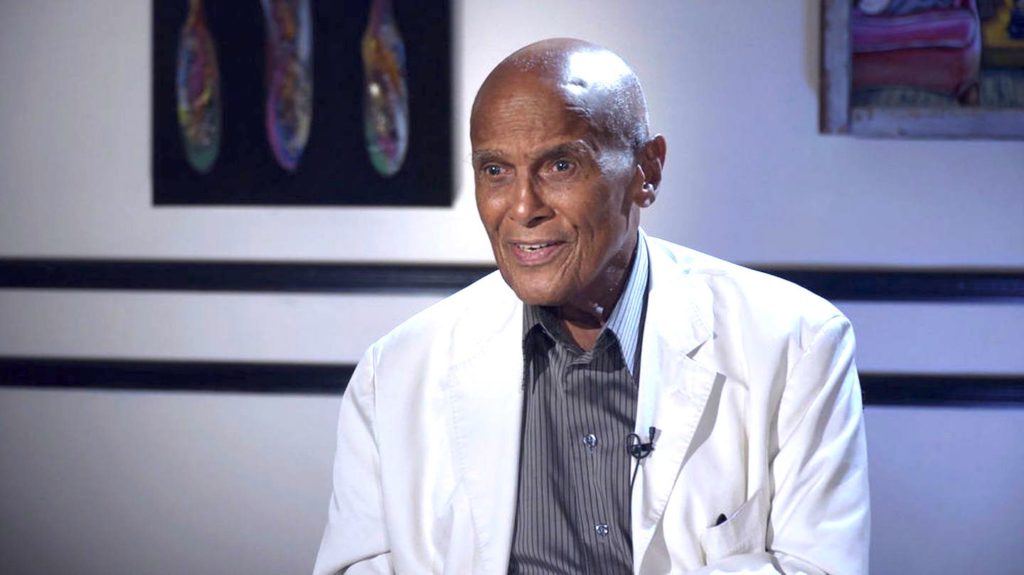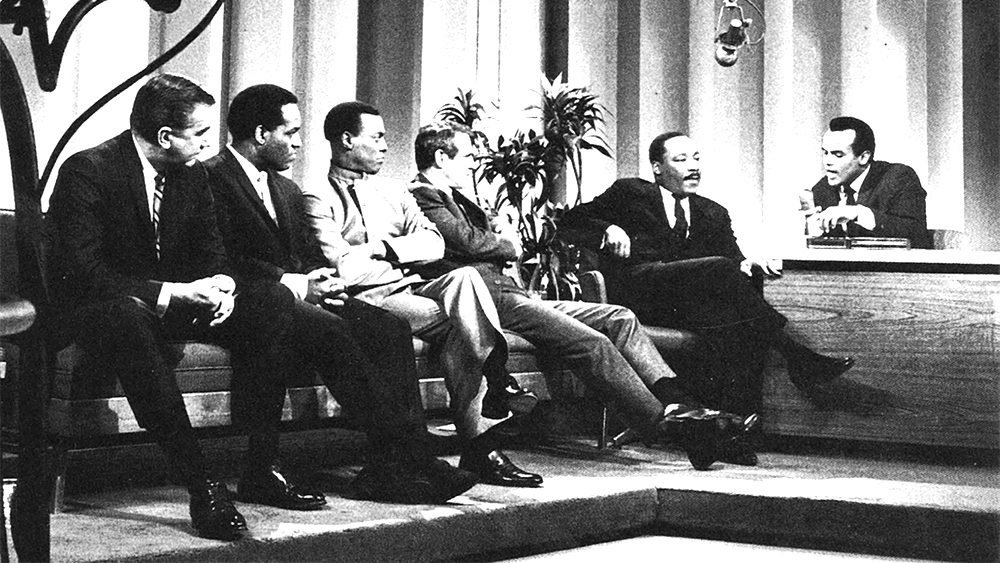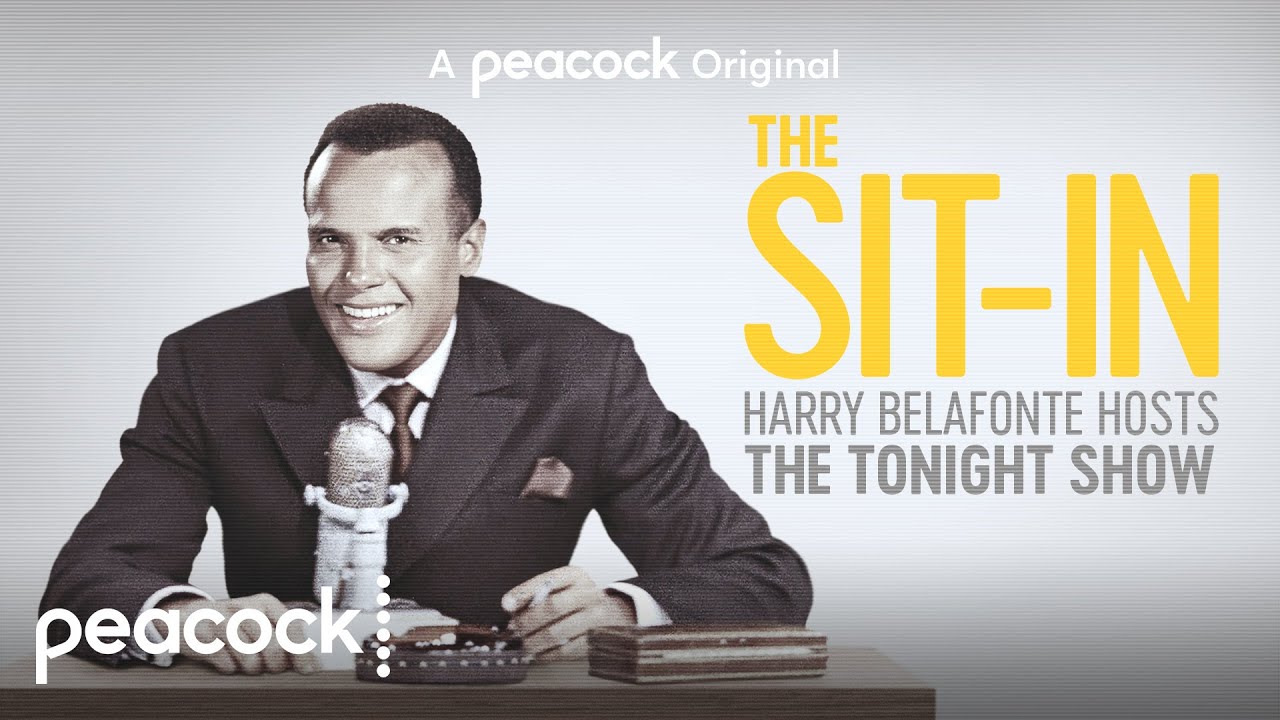“America needed to see what we were struggling with as a people of color. Art without content is not art. My job was to bring the best that Black America had to offer”—Harry Belafonte
Normally, during February, which is Black History Month, people all across America and some other parts of the world celebrate all that is the rich history of Black people—and we see endless programs showcasing Blacks from various fields.
In a momentous, recording-breaking week in February of 1968, the same thing rang true for Blacks and mainstream America, as night after night Black celebrities and those sympathetic to the Civil Rights Movement were presented in all their glory on “The Tonight Show Starring Johnny Carson.” But it wasn’t the personable talk show host who was born in the Midwest as the guy behind the desk. We learn in the Peacock streaming network documentary “The Sit-In: Harry Belafonte Hosts The Tonight Show,” as America was in the midst of one of the most tumultuous periods in its history, during a major escalation of the Vietnam War, and with social protests dominating the newscasts, Carson wanted to give a platform to politicians and entertainers of color — but he also thought his middle-of-the-road, largely apolitical style wouldn’t be the right fit.
Carson surrendered his talk show to his friend, the legendary entertainer and activist Harry Belafonte. With a guest list that included, among others, Wilt Chamberlain, Freda Payne, Dionne Warwick, Lena Horne, Diahann Carroll, Bobby Kennedy, Aretha Franklin, Dr. Martin Luther King Jr. and Sidney Poitier, Belafonte introduced “a fractured, changing country to itself for five historic nights.”
Belafonte wasn’t too enthusiastic about filling in for Carson at first, since Belafonte had had a successful one-hour special on NBC and was later offered a series. After the first episode of “New York 19,” which showed cast members of mixed ethnicities mingling, the sponsor Revlon cancelled the series, because Belafonte wouldn’t budge on his commitment to diversity.
During the Peacock documentary, which also provided comments from Whoopi Goldberg, Tamron Hall and other Black creatives, Belafonte said, “We could no longer tolerate racial indiscretions. The Black community had risen up with righteous indignation. As perfomers, we felt that we needed to speak out. America needed to see what we were struggling with as a people of color. Art without content is not art.”
The episodes showed mainstream America “a whole new group of Black artists they had never heard before.” Belafonte added: “My job was to bring the best that Black America had to offer.”
Each episode began with Belafonte singing a song, and the documentary reveals that he even showed home videos of his family. But not all the guests were Black. The late Senator Bobby Kennedy was one of the guests. Belafonte had considered Kennedy an elitist and out of touch with the plight of Black folks. He suggested that Kennedy travel Down South to see how poor Black people live, and he gave Kennedy an outlet to present his insight about that visit.
During that time, network television was inundated with shows filled with white people, such as “I Dream of Jeannie,” “The Beverly Hillbillies” and a host of beach-bikini movies. Carson’s show had a vast following and for many whites it was “the last thing they saw before they went to sleep.” Belafonte labeled television “one of the most powerful platforms of communication in the world.”

There was an enormous reluctance on the part of media to expose Black life, and Carson understood the issues facing Blacks, but he couldn’t do a week of shows himself. “He was making a statement.”
Dr. King hadn’t been on television much, and when Belafonte booked him, NBC network big shots asked whether Dr. King was going to discuss “that civil rights stuff,” to which Belafonte answered, “That’s a silly question. What would you like him to do, sing a song?”
The Civil Rights leader had been receiving death threats, and during the interview, Belafonte asked Dr. King if he were fearful about his life, to which Dr. King replied: “I’m more concerned about doing something for humanity and what I consider the will of God than about longevity. Ultimately, it isn’t so important how long you live, the important thing is how well you live.” Unfortunately, Dr. King, who had just turned 39, was assassinated less than two months later.
Also included in this episode were singer Leon Bibb, actor Paul Newman and comedian Nipsey Russell. New York Times writer Wesley Morris said: “The white person [Newman] was the minority on the stage. That’s crazy.” Regarding her appearance, Payne is quoted as saying: “We were stepping in high cotton.”
Ironically, 1968—as was 2020—had been described as “the craziest year at that time in America,” and the Smothers Brothers had been warned about stepping into political waters on their own namesake show when they made jokes about then-President Lyndon Baines Johnson and the fact that American soldiers were fighting in Vietnam. They were also part of “The Sit-In” epi- sodes.
It was the most revolutionary thing that mainstream television could have done at that time. Musician Questlove noted that “the tension couldn’t be ignored no matter how many blinders were put before you,” as he described the explosive years of 1967-1968. Although the episodes were widely embraced, some white people called them “a minstrel show” and “a soapbox for the NAACP.”
Carson held the reins to his show “The Tonight Show With Johnny Carson” for decades—from 1962 until 1992. After he retired, Jay Leno took over that nighttime spot. But for an incredible, soulful week during February 5 through February 9, the dynamic Belafonte took over Carson’s spot. These five episodes have been lost or taped over—except for two episodes that included appearances by Dr. King and Freda Payne.
During Black History Month, “The Sit-In: Harry Belafonte Hosts The Tonight Show” is being aired on the Peacock stream-
ing service, but “The Sit In” was also screened during a film fest held in 2020.
You can view the trailer by searching [https://tinyurl.com- /y3w3yss5].


Elaine Hegwood Bowen, M.S.J., is the Entertainment Editor for the Chicago Crusader. She is a National Newspaper Publishers Association ‘Entertainment Writing’ award winner, contributor to “Rust Belt Chicago” and the author of “Old School Adventures from Englewood: South Side of Chicago.” For info, Old School Adventures from Englewood—South Side of Chicago (lulu.com) or email: [email protected].






